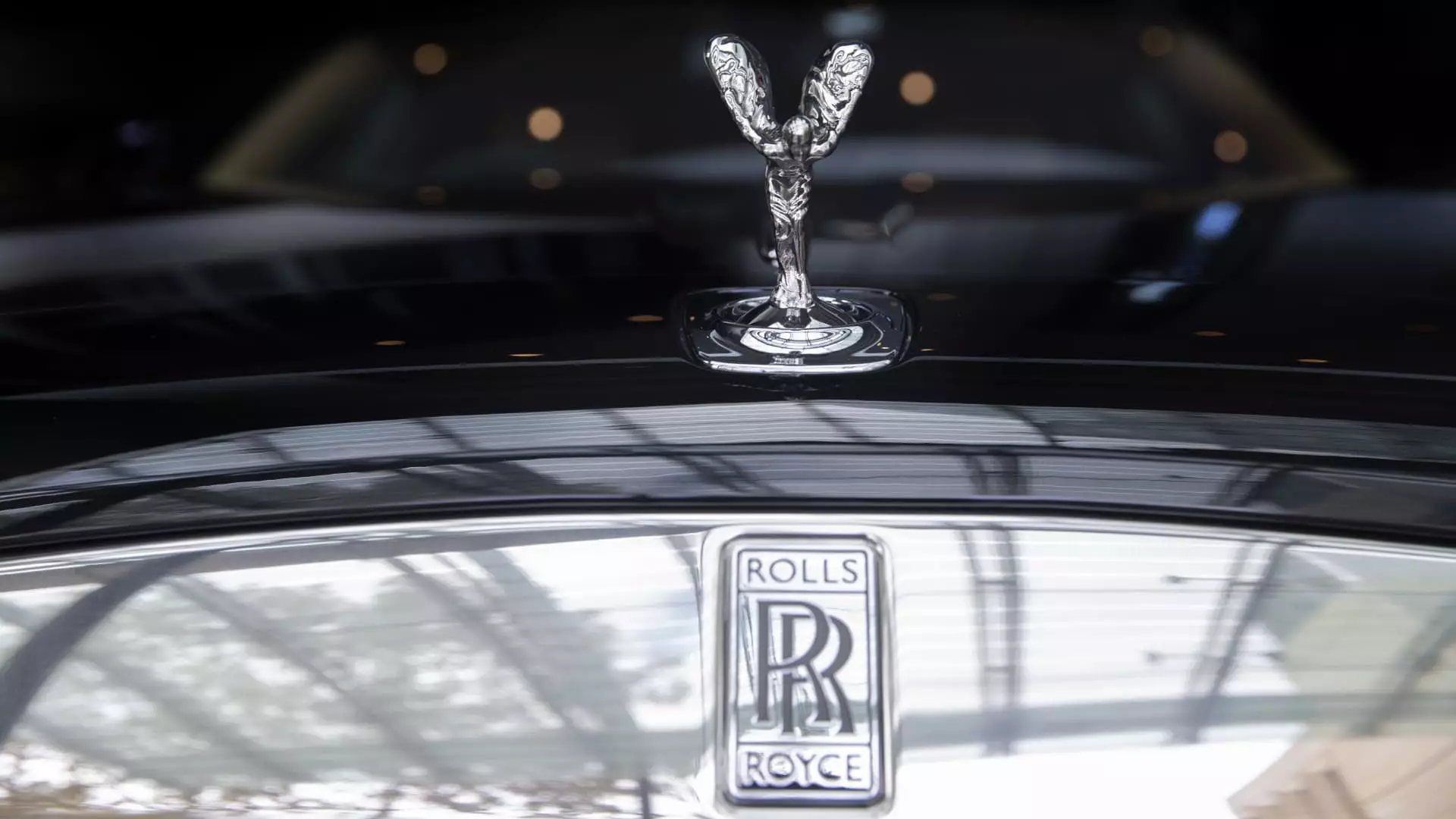In a strategic move away from mass production, Rolls-Royce has introduced its inaugural U.S. “Private Office” located in Manhattan’s Meatpacking District. This sophisticated design studio caters specifically to the high-net-worth clientele aiming for tailor-made vehicles. In an automotive landscape where luxury doesn’t just mean opulence but personalized artistry, Rolls-Royce is striving to redefine what it means to own a bespoke vehicle. Rather than merely increasing output, the brand is focusing on enhancing the uniqueness of each automobile, ensuring that the manufacture of every single car is a deeply personal endeavor.
The brand’s production numbers remain relatively modest compared to rival manufacturers, with figures not exceeding 6,032 units annually, a statistic that pales in comparison to Ferrari’s overproduction. Yet, this limited output enables Rolls-Royce to maintain robust profitability, showcasing a business model that emphasizes quality over quantity. This article will delve deeper into the ways in which the Private Office is set to revolutionize the luxury car market and what this means for consumers seeking exclusivity.
At the heart of the Rolls-Royce experience lies their “Bespoke” program, a phenomenon that elevates customization from a luxury to an art form. Buyers can indulge in a near-infinite array of options that extend beyond the typical luxury fare. From color-matching the exterior paint to the gleaming eyes of a beloved pet to including materials sourced from a private collection, the possibilities seem boundless. Rolls-Royce’s CEO, Chris Brownridge, reinforces the notion that each car can evolve from the unique dreams of its owner into tangible works of art.
Customization comes at a price, which for models like the Phantom can nearly double the initial sticker price, pushing some configurations over the $1 million mark. The exclusivity offered by the Private Office is reserved for the most extravagant requests, ensuring that those who enter these walls are not just buying a car; they are commissioning a masterpiece that speaks to their individuality.
The concept behind the Private Office transcends traditional showrooms. It is designed to evoke the atmosphere of a luxurious private residence rather than a standard car dealership. Upon entering through a discreet entrance, clients will notice that there are no vehicles on display. Instead, the ambiance is akin to a lavish lounge — complete with contemporary furnishings and an extensive vinyl record collection. The purpose of this space is not about showcasing what’s available but securing an intimate environment where clients can breathe life into their vehicular fantasies.
This bespoke sanctuary includes tactile samples of premium materials, a realm where the visual and the sensory intersect. Clients can examine the textures of leather, the sheen of metal finishes, and the depth of wood grains, each contributing to a car that is uniquely theirs. With an elevated understanding of the creative process, car enthusiasts can take part in discussions with designers who will guide them through the intricate complexities of their tailored commissions.
Rolls-Royce is not just creating cars but weaving personal narratives into their vehicles. The stories behind many bespoke requests reveal deep connections to culture and heritage. For instance, one client, captivated by Hawaiian culture, requested the use of rare Koa wood in their vehicle. This meticulous process took three years to locate suitable wood that adhered to conservation efforts, a testament to the brand’s commitment to honor the environment while fulfilling their clients’ desires.
Another captivating request included a floral car inspired by roses. The result? A Phantom with a headliner adorned with over one million embroidered roses — an illustration of how Rolls-Royce does not merely fabricate cars but curates experiences. Such detailed attention makes it evident that the bespoke process is about storytelling, cultivating relationships, and making each vehicle an extension of the owner’s identity.
Last but not least, the evolution into a more customized production layout encourages the cultivation of a community feeling among clients. When commissioning their unique vehicles, customers are not just spectators; they are participants. They develop relationships with the artisans crafting their cars, enhancing the emotional investment in each creation. Brownridge emphasizes that each client becomes part of the Rolls-Royce family, transforming the ownership experience into an interactive journey rather than a simple transaction.
As Rolls-Royce embraces this paradigm shift towards a customer-centric approach in luxury automotive design, the sheer depth of personalization it offers signifies a commitment not just to quality but to the individuality of each client. This innovative focus on bespoke craftsmanship has the potential not only to elevate the brand’s status but also to inspire a fresh wave of luxury personalization across the industry.

